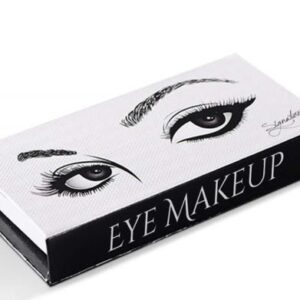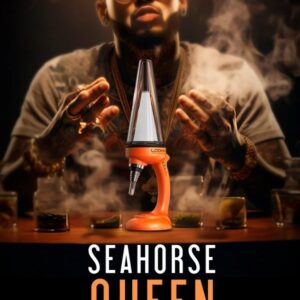India is witnessing a phenomenal rise in D2C (Direct-to-Consumer) brands, disrupting the traditional retail ecosystem with digital-first strategies, customer-centric innovations, and bold brand identities. With the explosion of e-commerce and social media, new-age Indian entrepreneurs are bypassing middlemen to deliver directly to consumers through their own websites and marketplaces.
From FMCG and fashion to home décor and electronics, D2C brands are building strong consumer trust, lean operations, and powerful brand recall.
🛒 What is a D2C Brand?
D2C brands manufacture and sell their products directly to customers through online platforms, removing the need for traditional retail distribution networks. This allows them to control the entire customer experience, gather direct feedback, and innovate faster.
🔍 D2C Boom Across Sectors
🧼 FMCG (Fast Moving Consumer Goods)
This segment leads the D2C boom in India. These brands offer clean-label personal care, nutrition, health, and lifestyle products that resonate with modern consumers.
Top D2C FMCG Brands in India:
- Spruce
- Mamaearth
- The Moms Co.
- St. D’vencé
- Donna
- The Man Company
- Omorfee
- StepSetGo
- Kérastase
- Allie
- Faces
- Zlade
- Sublime Life
- Mosaic Wellness
- Sleepy Owl
- The Whole Truth
- Teabox
- LetsShave
- Kama Ayurveda
- Bombay Shaving Company
- Man Matters
- PeeBuddy
- Beardo
- Auric
- Bold Care
- Aadar
- Nykaa
- The Green Maven
- The Yumm
- Noto
- Pee Safe
- Nua
- Snackexperts
- Paper Boat
- Vahdam Teas
- Raw Pressery
- Yoga Bar
- The Souled Store
- Licious
- Open Secret
- Gourmet Garden
- BRB
- Egoz
- Country Delight
- Timios
- Birra
- Gira Foods
- Capt. Zack
- Epigamia
- HealthKart
- mCaffeine
- frooters
- Snackible
- Smoor
- Smoozies
👗 Fashion
Fashion D2C brands are building niche identities by focusing on fit, fabric, sustainability, and online styling experiences.
Leading D2C Fashion Brands:
- Churchill & Company
- Wrogn
- Bombay Shirt Company
- FablAlley
- Bewakoof
- FableStreet
- Karagiri
- Anouk
- Mann & Sons
- Oks Oxford
- Fashor
- Tufi
- Assembly
- Neeman’s
- Walker
- Solethreads
- Meliora
- MyGlamm
- Tistabene
- Tjori
- Chique
- The Pant Project
- The Label Life
- The Loom
- DailyObjects
- Hitchhiker
- The Bear House
- Dinks
- Crest
- Strutt
🏠 Home Decor
D2C home décor brands have leveraged customization, affordability, and aesthetic sensibilities to furnish Indian homes with ease.
Popular D2C Home Decor Brands:
- Wakefit
- Pepperfry
- FlowerAura
- Good Earth
- Fabuliv
- Furlenco
- Saraf Furniture
- SleepyCat
- The White Willow
- Urban Ladder
- Iflo
- Wooden Street
- Painting Drive
- Sunday
- Morning Owl
💡 Consumer Electronics & Appliances
D2C brands in electronics focus on smart gadgets and affordable tech with minimalistic design and powerful performance.
Top D2C Electronics & Appliances Brands:
- Atomberg Technologies
- boAt
- iBall
- Intex
- FEDUS
- Livpure Smart
- Leaf
- Vibgyor
- Zebronics
🌟 Why Are D2C Brands Succeeding?
- Digital First: Leveraging social media, influencer marketing, and direct engagement.
- Customer Centricity: Direct feedback loop enables product improvements.
- Value Proposition: Better quality at lower cost without retail margins.
- Community Building: Focus on niche audiences with shared values.
🎯 Challenges Ahead
- Logistics and delivery delays in Tier 2/3 cities.
- Building brand trust without retail touchpoints.
- Managing return rates and customer service.
What is a D2C Brand?
A Direct-to-Consumer brand sells its products directly to customers through its own website, app, or digital storefront, rather than relying on third-party retailers, wholesalers, or distributors. This allows brands to own the end-to-end customer experience — from product creation to marketing, sales, delivery, and after-sales service.
Why India is Ready for D2C
Several factors are driving the rapid rise of D2C brands in India:
-
Digital Penetration
Over 850 million internet users and 650+ million smartphone users have enabled D2C brands to tap into both metro and tier II/III city audiences without physical infrastructure. -
Changing Consumer Behavior
Millennials and Gen Z consumers prefer shopping online. They crave transparency, personalized experiences, and instant gratification — all of which D2C brands offer. -
Lower Entry Barriers
Platforms like Shopify, WooCommerce, and Dukaan make it easy for entrepreneurs to launch a digital store with minimal investment. -
Social Media Influence
Instagram, Facebook, and YouTube have become powerful discovery engines. D2C brands use influencer marketing and user-generated content to build trust and grow organically. -
COVID-19 Acceleration
The pandemic accelerated e-commerce adoption, pushing even traditional shoppers to try online buying, giving D2C brands a huge opportunity.
Key Characteristics of Indian D2C Brands
-
Digital-First Approach
These brands are born online, focusing on performance marketing, SEO, and social selling. -
Customer-Centric Innovation
D2C startups often crowdsource feedback and iterate products based on real-time reviews. -
Niche Positioning
From skincare and nutrition to ethnic wear and eco-friendly products, D2C brands are dominating niches ignored by mass-market players. -
Data-Driven Decision Making
Owning customer data allows D2C brands to optimize marketing, inventory, and supply chain operations.
Successful D2C Brands in India
Here are a few Indian D2C success stories:
-
boAt – Revolutionized the audio segment with stylish and affordable headphones and wearables.
-
Mamaearth – Built on toxin-free personal care for babies and moms; now a household name.
-
Lenskart – From online eyewear to omnichannel experience, this brand became a unicorn.
-
The Souled Store – Offers pop culture merchandise and apparel with a fan-first strategy.
-
Wakefit – Disrupted the sleep solutions space with affordable mattresses delivered directly.
Benefits of the D2C Model
-
Full Control Over Brand Messaging
Without intermediaries, brands communicate directly with their audience, resulting in better storytelling and emotional connection. -
Higher Profit Margins
Cutting out middlemen increases margins, allowing brands to reinvest in R&D and marketing. -
Faster Product Iteration
Real-time consumer feedback helps D2C brands innovate quickly and align with market needs. -
Stronger Customer Relationships
Direct interaction leads to higher customer loyalty, better retention, and more referrals.
Challenges for D2C Brands
While the opportunities are vast, D2C brands face unique challenges:
-
High Customer Acquisition Costs (CAC)
Competing on ad platforms with big brands can be expensive. -
Logistics & Fulfillment
Delivering pan-India with speed and reliability is a challenge for many new brands. -
Customer Trust
Unlike traditional brands, new D2C startups must work harder to build credibility and trust. -
Scaling Beyond the First 1000 Orders
Moving from a startup to a scalable, profitable business model requires strong backend systems and leadership.
The Role of Technology
D2C success hinges on smart use of tech tools:
-
CRM & Automation Tools like HubSpot, Zoho
-
E-commerce platforms like Shopify, Dukaan
-
Ad analytics using Meta Ads Manager and Google Analytics
-
AI Chatbots for customer support
-
Inventory & order management systems for efficiency
Future of D2C in India
The D2C market in India is projected to reach ₹2 trillion (~$25 billion) by 2027. With investors backing innovative D2C brands and more consumers preferring direct engagement with brands, the future looks promising.
Key trends to watch:
-
Hyper-personalization using AI and machine learning
-
Sustainable products gaining popularity
-
Tier II/III market penetration via vernacular content
-
Subscription-based models for consumables like health, beauty, or food
-
Offline experience centers for omnichannel presence
🧠 Final Thoughts
India’s D2C brands are here to stay. They represent a new age of entrepreneurship, where authenticity, speed, and consumer connection matter more than shelf space. With growing internet penetration and digital payments, the future is bright for these trailblazing brands.




